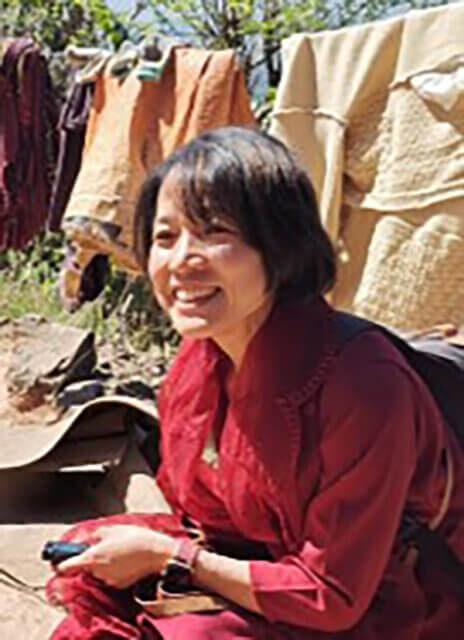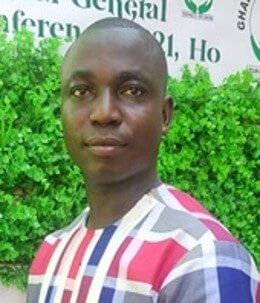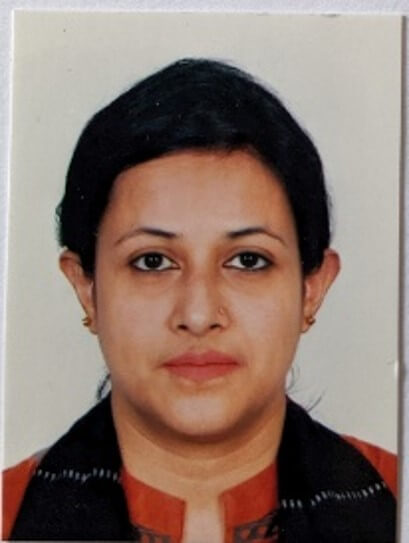Doctor of Public Health (DrPH) is a doctoral degree awarded to advanced professionals in public health-related policy development and implementation. It has been designed for those seeking careers as leaders in public health related organisations. Doctor of Philosophy (PhD) is a doctoral degree awarded to people with advanced expertise in a specific research topic. It is designed primarily for those seeking careers as researchers and scholars. It could be said that DrPH places more emphasis on practice than on specific research, and on leadership in practice.
An advanced professional education program for fostering leaders who can bring about change in public health
The Interfaculty Initiative in Planetary Health Doctor of Public Health (DrPH) program is an advanced professional education program that fosters leaders who can bring about change in public health. It is a three-year educational program conducted in English and limited to five participants. The entrance date is in October and the course follows the quarter system.
The Interfaculty Initiative in Planetary Health DrPH program aims to develop highly-educated global health leaders who are professionally competent in policy to contribute to the improvement of human health in accordance with the global environment.
Upon completion of the program, students are expected to perform as high-level leaders who will use the knowledge, skills, experience, and network connections obtained through the program to transform public health policy and strategize programs in the ministries, local governments, medical institutions, hospitals, international organisations, aid agencies, NGOs, foundations, universities, research institutes, think tanks, and corporations in their respective countries to improve public health. We look forward to your active participation as a high-level leader in transforming public health policies, strategies, and programs.
Curricula are organised to enable students to systematically acquire the knowledge and skills necessary for planning, implementing, and evaluating health policies.
Specifically, the course aims to help students (1) understand planetary health; (2) acquire the necessary insight and analytical skills to formulate, implement, and evaluate health policies; (3) acquire leadership and management skills; and (4) be able to propose and implement projects related to health policies.
Students take specialised courses for the first year and a half and prepare for and implement the DrPH Project till the end of the third year. Learning outcomes are evaluated through the number of credits earned, qualification examination results, and doctoral review assessment.
What is a DrPH degree and what is the difference between a DrPH and a PhD?
For example, do you have the following thoughts?
- I realise that solving real public health problems is difficult
- There is a gap to be bridged between science, policy, and practice around public health
- People’s health can be improved by enhancing their ability to formulate and implement health policies, strategies, and programs
- A career as a practicing professional rather than as a researcher or scholar is interesting
- I want to practice high-level leadership and be an agent of change in public health
DrPH targets those who want to advance their careers as public health professionals. The Interfaculty Initiative in Planetary Health DrPH Program (Nagasaki DrPH Program) is based on the belief that bridging the gap between science, policy, and practice is critical for improving public health. We are looking for individuals who recognise these gaps and wish to refine their ability to translate scientific findings into strategic actions to effect change.
The Nagasaki DrPH Program welcomes individuals with a strong desire and clear vision for advancing health policy formation and practice, as well as those from a variety of academic and professional backgrounds. You do not need to have a degree in public health or a medical field.
Why choose the Nagasaki DrPH Program?
The Nagasaki DrPH program has the following features
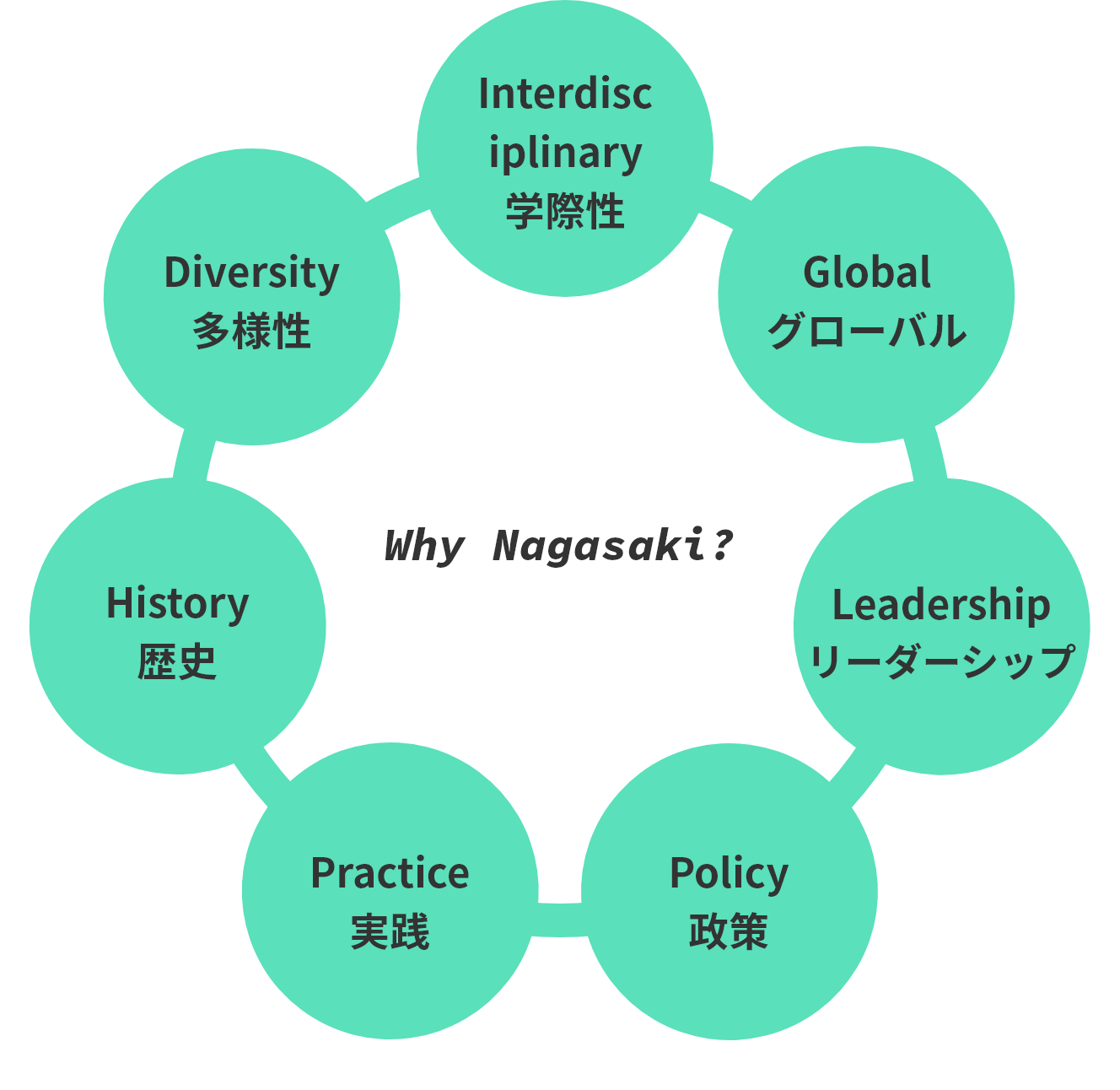
Interdisciplinary:
Global issues are difficult to solve with a singular academic discipline.
The Nagasaki DrPH program is based on the idea of planetary health, an integrative interdisciplinary (transdisciplinary) field, which encompasses human health and measures the healthy and sustainable coexistence of humans and the Earth.
Organised across the entire university beyond the Graduate School of Medicine, it includes experts not only in medicine and health, but also in the humanities, social sciences, and natural sciences; thus, it enables an interdisciplinary education.Global:
Public health issues, such as the health crisis due to the COVID-19 pandemic, are global issues that transcend national borders, and we need to look beyond one country (Japan).
The Nagasaki DrPH program emphasises global thinking and orientation.
It is possible to study about and research global issues and the health contexts of other countries with the aim of improving the health of people around the world.Leadership:
As the public health crisis during the COVID-19 pandemic revealed, there is a need for leaders who can actually solve problems.
The Nagasaki DrPH Program is an advanced professional education program that trains leaders to bring about change in public health. In addition to learning skills related to leadership and management, participants can practice these skills through exercises and other activities.
Upon completion of the program, we expect our graduates to serve as high-level leaders in ministries, local governments, medical institutions, hospitals, international organisations, aid agencies, NGOs, foundations, universities, research institutes, think tanks, corporations, and so on in their respective countries.Policy:
Thus far, universities have focused on building scientific evidence.
The Nagasaki DrPH program seeks to go further¬—to help students learn how to connect scientific evidence to policy, look at the disconnect between policy and practice, and actually improve people’s lives and health.
The Nagasaki DrPH Program offers policy advocacy training that has not been available in graduate education to date.Practice:
Public health challenges must be overcome through practice.
The Nagasaki DrPH program emphasises practice, and the curriculum is designed to enable students to systematically acquire the knowledge and skills necessary for planning, implementing, and evaluating health policies. A variety of teachers and instructors with diverse experience in practice will participate in the program.History:
Nagasaki University is the birthplace of Western medicine in Japan. In addition to medical education, we have accumulated many years of research in tropical medicine and practical education in global health. We have overseas research bases in Vietnam, the Philippines, Kenya, and other countries.
Diversity:
Diversity makes for better policies and organisations.
The Nagasaki DrPH program comprises faculty and staff from diverse graduate schools, extramural organisations, nationalities, and professions. Their work experience is diverse, including service in various governments, healthcare organisations, hospitals, international organisations, aid agencies, NGOs, foundations, universities, research institutes, and corporations.
The campus is home to students from all over the world, allowing for exposure to and learning about new ideas, values, cultures, policies, organisations, and ways of working.
Over the years, Nagasaki University has established a global network with organisations such as the Japanese government, JICA, the National Institute of Infectious Diseases, the National Centre for Global Health, the University of Tokyo, and the University of London. The Nagasaki DrPH program is designed to build on the education and research that has emerged from this longstanding collaboration, thus allowing participants to deepen their learning while meeting a diverse range of institutions and people.
Opportunities for hands-on exercises such as Practicum and DrPH Project enable students to acquire practical skills.
What are Planetary Health, Public Health, Global Health, and Planetary Health disciplines?
The following is the positioning of our Interfaculty Initiative.
- Planetary Health: A concept that encompasses human health and a new academic field that promotes healthy and sustainable coexistence between humans and the Earth.
- Public health (public health): A field of study that aims to improve the health of society as a whole by identifying human health problems as a group, clarifying their causes, and proposing appropriate countermeasures.
- Global Health: A discipline that focuses on public health issues that need to be understood and addressed at the global level.
Career paths on completion of the Nagasaki DrPH Program
Graduates of the Nagasaki DrPH program are expected to become leaders of change in the field of public health. Using the knowledge and skills acquired in the Nagasaki DrPH educational program, students can be employed in central ministries, local governments, health service organisations, hospitals, international organisations, aid agencies, NGOs, foundations, universities, research institutes, think tanks, corporations, and so on. Wherever they work, the role of DrPH graduates will be to implement public health research into effective policies, programs, and projects that can improve public health.
The Interfaculty Initiative in Planetary Health aims to train global health leaders with strong professionalism and high policy capacity who will contribute to human health promotion while considering its balance with the Earth’s environment.
The Nagasaki DrPH Program systematically organises its educational curriculum so that students can develop the necessary competencies and acquire the knowledge and skills required for health policy planning, implementation, and evaluation. All classes are offered in English, thus providing an optimal environment for the development of global human resources. A diverse cross-organisational faculty enables students to acquire a broad range of knowledge and expertise that goes beyond the traditional framework of public health education.
The Nagasaki DrPH Program curriculum consists of specialised courses and practicum. Specialised courses are taught in small-group lectures, and students acquire the necessary knowledge and skills to become public health leaders along with a focus on planetary health through discussions with faculty members. In the practicum, students have the opportunity to apply the knowledge and skills gained in the specialised courses to real-world situations. Students can improve their ability to bridge research, policy, and practice by actually working to solve real-world public health problems and summarising their experiences in a doctoral project thesis.
Curriculum Policy
Acquire the knowledge and skills required for global health policy formulation, plan implementation, and evaluation.
- An overview of planetary health
- (1) Knowledge of the relationship between human health, civilization, and the global natural environment
- (2) Understand planetary health implications for health policy
- Acquire the insight and analytical skills required for planning, implementing, and evaluating a health policy
- (1) Theoretical understanding of policy processes and implementation science
- (2) Ability to analyze health systems and make recommendations
- (3) Understand data analysis methods used in policy making and evaluation
- Acquire leadership and management abilities
- (1) Organizational management skills
- (2) Negotiation and communication skills
- (3) Knowledge of global health governance
- Project Exercise
- (1) Ability to propose and implement health-policy-related projects
- (2) Ability to write a doctoral dissertation
The level of achievement will be assessed through reports, written examinations, the quality of articles, presentations, and discussions.
List of List of courses
| Course type | Subject group | Subject name |
| In-class | Planetary Health | Introduction to Planetary Health |
| Policies and systems | Theories on Policy Processes | |
| Implementation Science | ||
| Health Systems and Policies | ||
| Data and analysis | Methods of Policy Analysis | |
| Leadership and management | Organizational Management | |
| Negotiation | ||
| Governance in Global Health | ||
| Practice | Practicum | |
| DrPH Project | ||
Curriculum Map
| 1Q | 2Q | Spring adjustment period | 3Q | 4Q | Summer adjustment period | |
| October–December | Jan.–Feb. | March | April–May | June–August | September | |
| Year 1 | Introduction to Planetary Health (2 credits) |
Health Systems and Policies (1 credit) |
Implementation Science (1 credit) |
Practicum (2 credits) |
||
| Organizational Management (1 credit) |
Negotiation (1 credit) |
|||||
| Governance in Global Health (1 credit) |
||||||
| Epidemiology I, Statistics I | Health Systems and Policies I | Epidemiology Ⅱ, Statistics Ⅱ | Health Economics | |||
| Year 2 | Theories on Policy Processes (1 credit) |
Methods of Policy Analysis (1 credit) |
Qualifying Writing Exam | Project proposal preparation | DrPH Project (4 credit) |
|
| Quantitative Research Methods | Qualifying Oral Exam | |||||
| Qualitative Research Methods | ||||||
| Year 3 | DrPH Project (4 credit) |
Dissertation review | ||||
| Final Oral Exam | ||||||
note: The above curriculum map is subject to change in the future.
Subject group
- Planetary Health
- Policies and systems
- Data and analysis
- Leadership and management
- Practice
- Supplementary courses
Subject Overview
1.In-class
Subject groupPlanetary Health
Subject name: Introduction to Planetary Health
In Introduction to Planetary health (two credits), instructors from a range of academic fields, including sociology, economics, political science, engineering, environmental studies, and anthropology, will conduct classes on an alternate basis to provide a broad understanding of planetary health. Human health and the Earth’s environment are closely linked, and it is becoming increasingly important to understand how human activities are changing the Earth’s environment, how those changes are in turn impacting human health, and what kind of policy is required to adapt to these changes and minimize health hazards. In this course, students will learn basic concepts of a comprehensive approach through planetary health and explore their application to health policy and programs to adapt to various existing and future issues. They will acquire competency in interdisciplinary comprehension and discussion concerning planetary health and cultivate an aptitude for formulating multisectoral programs that promote sustainable health and development.
Subject groupPolicies and systems
Subject name: Theories on Policy Processes,Implementation Science,Health Systems and Policies
This section aims to teach students the major conceptual frameworks of health policy and health systems and cultivate the skills necessary for their application.
In Theories on Policy Processes (one credit), students will gain keen insight into policy processes and cycles and develop the ability to explain the reasons behind policy changes. In this course, they will also apply major theories and findings from the field of public policy studies to understand the process by which health policies are made and the factors that influence this process. At the same time, the course will deepen their understanding of the methodology of causal inference upon which case studies are based and improve their skills for a deeper understanding of the scientific findings that policy research has accumulated.
Implementation Science (one credit) centres on policy implementation and aims to foster understanding of its major concepts and issues, as well as their solutions. Based on the emerging field of ‘implementation science’, this course will cultivate the ability to evaluate health policy implementation with an understanding of the complexity of health systems, their reciprocal relationships with politics and economy, and context sensitivity. Specifically, students will examine the gap between policy and implementation. They will acquire the ability to plan and implement countermeasures, the knowledge and skills required to verify the policy implementation process based on an understanding of the policy implementation context, the knowledge and skills required for planning and implementation, and evaluate innovative approaches to problem-solving.
In Health Systems and Policies (one credit), students will cultivate the ability to identify and solve health system problems as global health leaders. In this course, they will learn how to analyze problems associated with health systems, understand the options for their improvement, and develop feasible proposals.
Subject groupData and Analysis
Subject name: Methods of Policy Analysis
In Methods of Policy Analysis (one credit), students will gain an understanding of the analytical methods used in policy planning and evaluation. To encourage policy decisions based on scientific evidence, a certain level of understanding of the analytical methods and the data used to generate evidence is vital. This course will provide an overview of the mathematical techniques used to identify population-level health issues, assess and compare policy proposals, and evaluate existing policy. Specifically, the course will address the analytical approaches of meta-analysis, big data analytics, health technology assessment, modelling, and prediction of intervention effects. It will clarify how data is collected, analysed, and utilised in policy-making in each approach and students will learn the knowledge required to become global health leaders.
Subject groupLeadership and management
Subject name: Organizational Management,Negotiation,Governance in Global Health
This subject group will teach skills related to organizational management and negotiation.
In Organizational Management (one credit), students will acquire knowledge, techniques, and skills related to organizational management and strategy development. The course aims to improve knowledge, techniques, and skills concerning basic theory and practice related to organizational management, business strategy, financial management, team management, innovation, and entrepreneurship.
In Negotiation, students will acquire knowledge, techniques, and skills related to negotiation and public relations of an organization or a program. This course will deepen the understanding of basic theories of negotiation, the actual practice of international and inter-organizational negotiations, methods of preparing a variety of documents, and public communication, and cultivate skills that can be used in practice.
In Governance in Global Health (one credit), students will learn international guidelines, standards of conduct, and legal frameworks related to disease control, health policy, health systems, and crisis management to deepen their leadership skills necessary for advancing discussions, consensus building, and diplomacy between nations regarding their development. This subject will improve students’ diplomatic skills in international arenas such as the World Health Assembly, enhance their practical skills in cooperation, collaboration, and coordination with international partnerships, private foundations, professional organizations, and citizens’ groups and enable them to implement appropriate and effective policies in a variety of situations.
2.Exercise Course
Subject groupPractice
Subject name: Practicum
In Practicum (two credits), students will utilise their first-year summer term to perform short-term in-service training at an international organization, government agency, NGO, or private business. As a professional specialising in public health, they will personally identify an issue faced by their partner organization, which can be solved in a short period of time. Students will then apply what they have learned in their first-year specialised courses to solve the problem and show a certain level of success within a limited amount of time. Through this experience, they will hone their skills in problem settings, coordination, negotiation, and communication. Students are expected to utilise their In-service Training experience to set the theme and location of the ProjectExercise carried out in years two and three.
Subject groupPractice
Subject name: DrPH Project
- As a culmination of their studies in the DrPH program, students must conduct a project with an international organisation, government agency, NGO, or private company, which functions as a host institution, from the second half of their second year through their third year.
- Students are either assigned to these host institutions or work with them as clients in strategic planning and implementation. Through this experience, the program enhances their ability to coordinate, negotiate, propose, and implement health policies and programs.
- As the intellectual product of the project, the student must write a dissertation and submit it to Interfaculty Initiative and the host institution.
- The DrPH Project differs from a typical internship. Beyond simply serving an apprenticeship at the host institution, students must also make an intellectual contribution to the host institution as requested.
<Period of implementation>
- The DrPH Project will begin in the fourth quarter of the second year (June) or later on a date agreed upon with the host institution.
- Students must pass the Oral Qualifying Exam (OQE) on the DrPH Project proposal by the start date.
- In principle, the project period should be at least 10 months, which may include the period for writing project deliverables.
- Projects must be completed by the third quarter of the third year unless the period of study has been extended.
<Host organization and theme>
The host organization for the DrPH Project must be clearly defined within the project. It is acceptable to work with the organization with which the student was affiliated prior to enrolment, but it is not acceptable for the student to simply extend the work that the student was engaged in prior to enrolment. The theme of the project should be related to public health, and it should be able to influence the policies and strategies of the host organization.
As a general rule, the student will be responsible for identifying the host organization and negotiating the terms of acceptance. Students may seek advice from project advisers as appropriate. The relationship between the host organization and the student is assumed to take various forms, such as the case where the student becomes an employee of the host organization or the case where the host organization entrusts the work to the student as an external consultant. In either case, the form of acceptance will be determined based on mutual agreement between the student and host institution, and the two parties will conclude an agreement as needed.
<DrPH doctoral thesis>
Students will write a doctoral thesis as the final product of the DrPH project and submit this to the host organization and dean of the Interfaculty Initiative. The format and content of the doctoral thesis will vary depending on the nature of each DrPH Project, but as a general rule, the main audience will be the host organization, and the basic elements of the thesis will be to promote the policies, strategies, and practices of that organization and recommendations for improving those aspects.
This DrPH doctoral thesis does not need to take the form of an original research article. It is a document that utilises and synthesizes existing scientific knowledge, identifies and analyses health policy issues, proposes solutions, and summarises the lessons learned when implementing solutions.
3.Supplementary courses
Subject groupSupplementary courses
Subject name: Epidemiology IⅡ, Statistics IⅡ, Health Systems and Policies I, Quantitative Research Methods, Qualitative Research Methods, Health Economics
4.Learning environment
Self-study room
Available 24 hours a day, 365 days a year.
Nagasaki University Medical Library
Study, reading, etc. available. Open 8:30-22:00 on weekdays during normal term, 10:00-20:00 on weekends and public holidays, closed during summer and year-end and New Year holidays. The Central Library (Bunkyo Campus) is also available.
Electronic journals.
Around 20,000 titles are available.
Email address, Wifi
Each student is given an address. On-campus Wifi is available.
Sakamoto Campus (Nagasaki University)
How long do I need to stay in Nagasaki?
The Nagasaki DrPH program is a three-year doctoral program, and students are required to study in Nagasaki as full-time students during their first one and a half years.
During the DrPH Project period, which begins in the second half of the second year, students can work part-time at the host institution or work and study flexibly according to their personal circumstances.
For more information, see the curriculum.
There is no Master’s degree in Public Health. Are there opportunities to supplement my public health expertise?
Please see the complementary subjects in the curriculum.
Because we actively accept students from fields other than public health, there may be a bias in the basic knowledge needed to understand specialised courses at the time of admission. Therefore, if necessary, students can take courses such as epidemiology, statistics, health systems and policies, quantitative and qualitative research methods, health economics, and other subjects offered in the Master’s Program in Tropical Medicine and Global Health as complementary courses. Please note that complementary courses will not be granted credits.
Can I audit courses at the School of Tropical Medicine and Global Health?
To supplement the basic knowledge of students who are advancing from fields other than public health, we offer courses in the master’s program of the School of Tropical Medicine and Global Health (‘Epidemiology/Statistics’, ‘Health Systems and Policies’, ‘Quantitative Research Methods’, ‘Qualitative Research Methods’, and ‘Health Economics’). Credits for supplementary courses are not recognised.
Admission Information
Admission Policy
The DrPH Program seeks students who meet the academic standards and criteria outlined below:
1. Those who possess basic knowledge and skills in the field of public health or related fields*¹ as well as logical thinking which is necessary to develop academic and practical abilities.
2. Those who display leadership qualities and cooperativeness, possess communication skills to solve problems, and have a willingness to contribute to the improvement of public health.
3. Those with a passion and a clear vision for advancing health policy formulation and implementation.
*1: In addition to public health, “related fields” include a wide range of fields such as healthcare, health sciences, environmental studies, social development, peacebuilding, international cooperation, public policy, and organizational management.
Prerequisites for Application
Applicants need to have at least four years work experience*¹ in the field of public health or a related field*² as well as fulfill the requirements described in the application guidance.
*1: Applicants from both government and private sectors are welcome. Work experience in both domestic and overseas settings are acceptable, but experience in low- and middle-income countries is desirable. In principle, internships and volunteer experience are not considered as work experience, but will be considered separately.
*2: In addition to public health, “related fields” include a wide range of fields such as healthcare, health sciences, environmental studies, social development, peacebuilding, international cooperation, public policy, and organizational management.
English Language Requirements
- For candidates whose first language is not English, the standard requirement is CEFR B2 level (IELTS 5.5, TOEFL iBT 72, Duolingo English Test 100).
- Applicants who do not meet the standard requirements may still qualify.
- Please check the application guidance to ensure that your test result has not expired prior to submission.
Duration
3 years.
・The Nagasaki DrPH program is a three-year doctoral program, and students are required to study in Nagasaki as full-time students during their first one and a half years.
・During the DrPH Project period, which begins in the second half of the second year, students can work part-time at the host institution or work and study flexibly according to their personal circumstances. Please note that, while the host institution can be the place of employment prior to enrolment, students are not permitted to simply continue the content of their work prior to enrolment as the DrPH Project.
Enrolment period
beginning of October
Intake Quota
Five Students
Selection Method
Selection for admission is based on a comprehensive evaluation of the applicant‘s performance in the interview, foreign language examinations, and document review. In the interview, based on the submitted documents, candidates will be asked questions and answers about their interest and motivation to carry out their academic duties and their specific future career plans, focusing on the Personal Statement. For the Foreign Language Test, the applicant will be evaluated on his/her English proficiency (CEFR B2 level or higher) necessary to take courses and receive research guidance in English. In addition, students with acquired language skills will be evaluated separately.
Entrance examination schedule
| Application guidelines | To be published around late January (refer to the application guidance for details) |
|---|---|
| Screening of application qualifications | Screening of application qualifications or at least four years' work experience in a relevant field (if desired) (Deadline around mid-March) |
| Application | Submission of prescribed application documents (around early to mid-April) |
| Examination | Examination of application documents and interview (around mid-May, to be decided after coordination with the candidate) |
Application Guidance for 2025 Admission
| Application Guidance for 2025 Admission | view |
|---|
Application Forms
Application Forms (Please use the following forms) In principle, please do not handwrite the Application Form, Personal Statement and Research Achievement, but type them in MS Word.
| Application Form [Form1] | Word download |
|---|---|
| Photo Card/ Admission Slip[Form2.3] | Word download |
| Personal Statement [Form4] | Word download |
| Certificate of Employment [Form5] | Word download |
| Research Achievement [Form6] | Word download |
| Application for Preliminary Screening [Form7] | Word download |
| Request Form for Disclosure of the Entrance Examination Results [Form 8] | Word download |
Fee (application fees, enrolment fees and tuition fees)
| Application fee | 30,000 yen |
|---|---|
| Admission fee | 282,000 yen |
| Tuition fee | 535,800 yen/year (tuition fees are subject to change) |
For information on how to pay tuition fees, see here.
https://www.nagasaki-u.ac.jp/ja/campuslife/fee/index.html
Financial support (tuition fee waiver, scholarships, etc.)
Nagasaki University's own entrance fee and tuition fee waiver system.
For details, see here.
https://www.nagasaki-u.ac.jp/ja/campuslife/support/free/free/graduate/index.html
Major scholarships, research grants, etc.
<Interfaculty Initiative’s own research grants>
- DrPH Stipend
Objective The Nagasaki University Graduate School Interfaculty Initiative in Planetary Health aims to nurture human resources who can contribute to the realisation of planetary health (where the coexistence of human society, the Earth, and various ecosystems is a major issue) through interdisciplinary education and research. In the Doctor of Public Health Program (hereafter, ‘DrPH Program’), we will foster professionals who can bridge science, policy, and practice related to public health on a global scale, which is the core of planetary health. To achieve this objective, the program will provide research grants to students enrolled in the DrPH Program to ease their financial burden and enable them to devote themselves to their studies and research. Subjects Interfaculty Initiative in Planetary Health (DrPH Program) students
(The number of recruits is determined on an annual basis.)Form Benefit type (not based on household standards) Grant amount 150,000 yen per person per month Benefit period Within the standard term of study (however, there is a continuing review every year) Other Recipients are required to apply for JSPS Fellowships (DC), other equivalent scholarships, and so on. How to apply Refer to the application guideline and Q&A for details.
<Nagasaki University Financial Support Program>
- Kyoiku Kenkyu Shien Keihi (“Stipend”), of the WISE Programme
Organization: Nagasaki University Doctoral Programme for World-leading Innovative and Smart Education for Global Health (WISE Programme)
Stipend: WISE Students JPY 200,000 per month
WISE Candidates JPY 100,000 per month
Category: benefit type
Target group: doctoral students (open to all admitted or prospective students) For more information on the program, click here.
http://www.wise.nagasaki-u.ac.jp/ - Nagasaki University Special Research Scholar
Organization: Nagasaki University
Stipend: 50,000 yen/month
100,000 yen per month (for final year students who are particularly outstanding)
Category: benefit type
Target group: Doctoral students - Nagasaki University Planetary Health Research Scholarship
Organization: Nagasaki University
Stipend: 50,000 yen/month
Category: benefit type
Target group: Postgraduate students
Scholarships and other scholarships within Nagasaki University will be announced individually to eligible applicants when they become available.
<Scholarships from private foundations and local authorities>
For more information, see.
https://www.nagasaki-u.ac.jp/ja/campuslife/support/free/private/index.html
Some scholarships are not offered by universities but directly by other organisations, so please gather information on your own.
<Japan Student Services Organisation (JASSO) Scholarships>
The Japan Student Services Organisation (JASSO) provides scholarships for students of outstanding character and academic achievement who have difficulty in studying due to financial reasons.
For more information, see here.
https://www.nagasaki-u.ac.jp/ja/campuslife/support/free/ikueikai/index.html
For other financial aid information on Nagasaki University, please see here.
https://www.nagasaki-u.ac.jp/ja/campuslife/support/
Nagasaki DrPH Program Application
What is a DrPH degree and what is the difference between a DrPH and a PhD?
Doctor of Public Health (DrPH) is a doctoral degree awarded to advanced professionals in public health-related policy development and implementation. It has been designed for those seeking careers as leaders in public health related organisations. Doctor of Philosophy (PhD) is a doctoral degree awarded to people with advanced expertise in a specific research topic. It is designed primarily for those seeking careers as researchers and scholars. It could be said that DrPH places more emphasis on practice than on specific research, and on leadership in practice.
Who should apply to DrPH?
DrPH targets those who want to advance their careers as public health professionals. The Interfaculty Initiative in Planetary Health DrPH Program (Nagasaki DrPH Program) is based on the belief that bridging the gap between science, policy, and practice is critical for improving public health. We are looking for individuals who recognise these gaps and wish to refine their ability to translate scientific findings into strategic actions to effect change.
The Nagasaki DrPH Program welcomes individuals with a strong desire and clear vision for advancing health policy formation and practice, as well as those from a variety of academic and professional backgrounds. You do not need to have a degree in public health or a medical field
If you have the following thoughts, you should apply.
- I realise that solving real public health problems is difficult
- People’s health can be improved by enhancing their ability to formulate and implement health policies, strategies, and programs
- A career as a practicing professional rather than as a researcher or scholar is interesting
- I want to practice high-level leadership and be an agent of change in public health
In the overview, “For example, do you have the following thoughts?” for more information.
What are the features of the Nagasaki DrPH Program?
In the Overview, “Why choose the Nagasaki DrPH Program?” for more information.
What are the career paths after completion of the Nagasaki DrPH program?
Graduates of the Nagasaki DrPH program are expected to become leaders of change in the field of public health. Using the knowledge and skills acquired in the Nagasaki DrPH educational program, students can be employed in central ministries, local governments, health service organisations, hospitals, international organisations, aid agencies, NGOs, foundations, universities, research institutes, think tanks, corporations, and so on. Wherever they work, the role of DrPH graduates will be to implement public health research into effective policies, programs, and projects that can improve public health.
In the Overview, “Career paths on completion of the Nagasaki DrPH Program” for more information.
Is there a maximum capacity for the Nagasaki DrPH program?
The Nagasaki DrPH program accepts five students each year.
Numbers are limited in order to provide an educational and research environment of the highest standard.
See the number of applicants in the admission information.
What are the application requirements for the Nagasaki DrPH program?
See the application guidance.
With regard to degrees, can I take the exam even if I do not have a Master’s degree in Public Health?
Holders of degree degrees equivalent to or higher than a master’s degree (public health) are eligible to take the examination.
See the application guidance.
What is the relevant field of ‘work experience in a relevant field’?
In addition to public health, “related fields” include a wide range of fields such as healthcare, health sciences, environmental studies, social development, peacebuilding, international cooperation, public policy, and organizational management. Applicants from both government and private sectors are welcome. Work experience in both domestic and overseas settings are acceptable, but experience in low- and middle-income countries is desirable. In principle, internships and volunteer experience are not considered as work experience, but will be considered separately.
See the admission information.
Does work experience in a relevant field include internships or volunteering?
In principle, internships and volunteer experience are not considered as work experience, but will be considered separately.
See the admission information.
What exactly does ‘Possess the English language skills required for coursework and project implementation’ mean?
・For candidates whose first language is not English, the standard requirement is CEFR B2 level (IELTS 5.5, TOEFL iBT 72, Duolingo English Test 100).
・Applicants who do not meet the standard requirements may still qualify.
See the admission information.
What is the duration?
Duration: 3 years.
Enrolment period: beginning of October
See the admission information.
When is the enrolment period?Can I choose when to enrol?
The Nagasaki DrPH program starts at the beginning of October each year.
Students in the Nagasaki DrPH program are required to complete specialised courses before proceeding to the DrPH project.The dates of specialisations are fixed and students should start their studies at the beginning of October, when the DrPH program starts.
See the admission information.
What is the selection method?
Selection for admission is determined after a comprehensive evaluation of the applicant’s performance in the interview, foreign language examinations, and document review.
1. During the interview, candidates will be asked about their interest and motivation for academic work and their specific future career plans, based on the submitted documents, with special focus on the Personal Statement.
2. Students will be evaluated on their English proficiency, which is necessary for course enrolment and research guidance. Those with additional language skills will be evaluated separately.
For more information, see the application guidance.
See the admission information.
Do I need to decide on a supervisor before applying?
Not required.
It is possible to contact teachers before applying.
Do I need to submit a research proposal with my application?
It is not necessary.
For more information on the research, see DrPH project description.The host organization for the DrPH Project does not have to be decided before the application is submitted.
What are the results of past admissions?
<2022>
There were seven examinees and five successful applicants.
The successful candidates included three international students (African and Asian) and two Japanese.
The occupations of the successful candidates varied.
<2023>
There were ten examinees and five successful applicants.
The successful candidates included three international students (African and Asian) and two Japanese.
The occupations of the successful candidates varied.
Do I need to decide on a host organisation for the DrPH project before enrolment?
It is not necessary.After enrolment, students plan independently and teachers provide advice and support.
Curriculum courses: see DrPH Project.
When are the application deadlines and admissions examinations?
The application deadline is in April and the admissions examination is scheduled for May.
For more information, see the application guidance.
How long do I need to stay in Nagasaki?
The Nagasaki DrPH program is a three-year doctoral program, and students are required to study in Nagasaki as full-time students during their first one and a half years.
During the DrPH Project period, which begins in the second half of the second year, students can work part-time at the host institution or work and study flexibly according to their personal circumstances.
For more information, see the curriculum.
What is the name of the degree awarded on completion?
[ Degrees to be awarded ] Doctor of Public Health
Curriculum
What is the curriculum like?
For more information, see the curriculum.
What is the DrPH project about?
Curriculum courses: see DrPH Project.
What is the relationship between the host organisation and the students in the DrPH project?
The relationship between the host organization and the student is assumed to take various forms, such as the case where the student becomes an employee of the host organization or the case where the host organization entrusts the work to the student as an external consultant. Please note that the university does not pay salaries or allowances to students.
Curriculum courses: see DrPH Project.
Can I set the host organisation for my DrPH project to the organisation I was part of prior to enrolment?
It is acceptable to work with the organization with which the student was affiliated prior to enrolment, but it is not acceptable for the student to simply extend the work that the student was engaged in prior to enrolment.
Curriculum courses: see DrPH Project.
What are the characteristics of the DrPH doctoral thesis of the Nagasaki DrPH program?
長崎DrPHプログラムの博士学位論文は、原著論文(Original Research Article)としての性格を有する必要はありません。既存の科学的知見を活用、統合し、保健政策課題の特定や分析を通して解決策を提案し、解決策を実施する場合はそこから得られた教訓をまとめる文書となります。
Curriculum courses: see DrPH Project.
There is no Master’s degree in Public Health. Are there opportunities to supplement my public health expertise?
Please see the complementary subjects in the curriculum.
Because we actively accept students from fields other than public health, there may be a bias in the basic knowledge needed to understand specialised courses at the time of admission. Therefore, if necessary, students can take courses such as epidemiology, statistics, health systems and policies, quantitative and qualitative research methods, health economics, and other subjects offered in the Master’s Program in Tropical Medicine and Global Health as complementary courses. Please note that complementary courses will not be granted credits.
What are Planetary Health, Public Health, Global Health, and Planetary Health disciplines?
The following is the positioning of our Interfaculty Initiative.
- Planetary Health: A concept that encompasses human health and a new academic field that promotes healthy and sustainable coexistence between humans and the Earth.
- Public health (public health): A field of study that aims to improve the health of society as a whole by identifying human health problems as a group, clarifying their causes, and proposing appropriate countermeasures.
- Global Health: A discipline that focuses on public health issues that need to be understood and addressed at the global level.
What is the Interfaculty Initiative?
This is an organisation that is positioned the same as a Graduate School. To contribute to planetary health, which is the goal of Nagasaki University, we envision a ‘circle of learning’ and ‘circle of university and society’—that is, we aim to connect various fields to global issues and develop education and research. This ‘Interfaculty Initiative’ is also used at other universities by organisations that provide interdisciplinary education.
Can I audit courses at the School of Tropical Medicine and Global Health?
To supplement the basic knowledge of students who are advancing from fields other than public health, we offer courses in the master’s program of the School of Tropical Medicine and Global Health (‘Epidemiology/Statistics’, ‘Health Systems and Policies’, ‘Quantitative Research Methods’, ‘Qualitative Research Methods’, and ‘Health Economics’). Credits for supplementary courses are not recognised.
Tuition, and Financial Aid
How much are the tuition fees?
Is financial aid available?
What are the costs of tuition fees and living expenses?
According to the results of the JASSO’s survey on student life in 2018, the average expenditure on tuition fees and living expenses for a postgraduate doctoral course (boarding house, flat, other) is approximately 2.37 million yen.
Are dormitories available?
There are no dormitories for Japanese, but international students have their own dormitories.
For more information, see the website of the Nagasaki University Center for Japanese Language and Student Exchange.
相談・照会
Can I visit the campus?
Possible. Please contact us using the contact form.
Can I make an enquiry?
Possible. Please contact us using the contact form.
Students & Projects
-
Emmanuel Ifechukwude Benyeogor
Academic titleMPH, FRSPHInterestsOperational research (Decision-making), Systems thinking, Uncertainties and risk communication, Carbon financing, Planetary Health, Anitmicrobial Resistance, Public Health Emeregency Management, Epidemic Intelligence, and Data science, I am a Global Outreach Fellow at the Planetary Health Alliance from January to December 2024. In this role, I attended the PHAM 2024 in Malaysia and now part of the programme committee for the PHAM 2025 in Rotterdam. -
Raymond Mufwaya Nsene
Academic titleM.D., MPH, MBAInterestsHealth System Management, Planetary Health -

Nguyen Thi My Hanh
Academic titleMPHInterestsAging, vaccination introduction, environmental health, zoonotic diseases -

Mayumi OMACHI
Academic titleBA (Nursing), MPHInterestsMaternal, Newborn and Child Health, Nutrition, NCD -
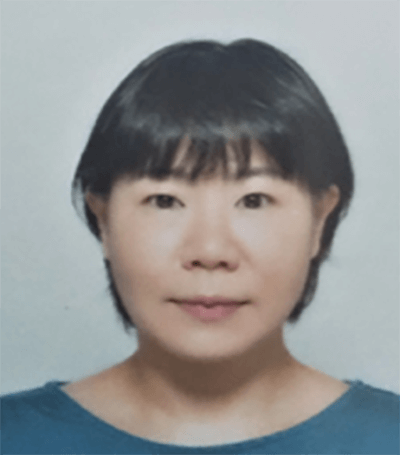
Miyako Otsuka
Academic titleM.D., MA in EconomicsInterestsHealth emergency, Infectious Diseases, Mather and Child Health, (Conflict Management) -
Saheed Ibrahim
Academic titleMscInterestsClimate Change and Health, Health System Reserch, Envriromental Management, Health Administration and Management -
Jahan Iffat
Academic titleAnthropologistInterestsSexual and reproductive health, marginalized population (e.g. street children, transgender, sex worker, MSM), Planetary health -
ADEWUNMI Oluwaseun Adebayo
Academic titleMBBS (Lagos, Nigeria), MPH in Global Health (Tokyo, Japan), DrPH - in view (Nagasaki Japan)InterestsPlanetary Health | Public Health | Healthcare Crisis Management | Mental Health and Psychosocial Support in Emergencies | Healthcare Technology | Global Health | Global Health Entrepreneurship -
Chanida Ekakkararungroj
Academic titleBEcon, MEconInterestsHealth system and policy, Health technology assessment -
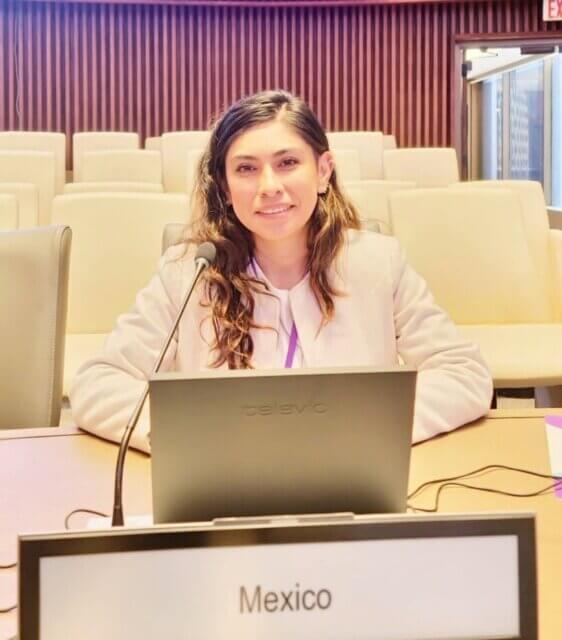
RUTH PURISIMA GONZALEZ SANCHEZ
Academic titleMedical Doctor (MD); Specialist in Epidemiology, Master in Public AdministrationInterestsPublic Health, Public Administration, Epidemiology, Statistics, Health Systems, Global Health, One Health and Planetary Health -
Mavis Sakyi
Academic titleMBCHB, MPHInterestsHealth Systems and Policy Research, Implementation Research, Non-communicable diseases Research and programme implementation, Global Health Security, Planetary Health and Climate Change
DrPH News
-
Final Report for the 2024 DrPH Practicum (in Cambodia) is released
-
Report essays on the Minamata study tour (July 2024)
-
A debriefing session was held for the DrPH Cambodia practicum.
-
Final Report for the 2023 DrPH Practicum is released
-
2024 Academic Year: Entrance Ceremony for Doctor of Public Health (DrPH) Program



